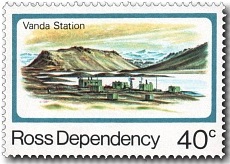 Vanda Station was an Antarctic Research Base in the western highlands (Victoria Land) of the Ross Dependency, specifically on the shore of Lake Vanda, at the mouth of Onyx River, in the Wright Valley. The four original station buildings were constructed in the summers of 1967–1968 and 1968–1969, just prior to the first winter-over by a five-man team from January to October 1969.
Vanda Station was an Antarctic Research Base in the western highlands (Victoria Land) of the Ross Dependency, specifically on the shore of Lake Vanda, at the mouth of Onyx River, in the Wright Valley. The four original station buildings were constructed in the summers of 1967–1968 and 1968–1969, just prior to the first winter-over by a five-man team from January to October 1969.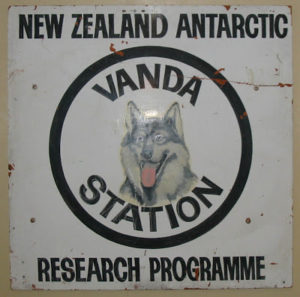
Subsequent wintering parties occupied the station in 1970 and 1974. During summer seasons, Vanda Station was fully staffed until 1991.
Scientific programs principally included meteorology, hydrology, seismology, earth currents, and magnetics. The station was administered by the Department of Scientific and Industrial Research (DSIR), and was supported logistically by the permanent New Zealand research Scott Base (WAP NZL-Ø1) on Ross Island.
In 1995, environment concerns resulted in the base being closed. Various activities associated with the station’s occupation, 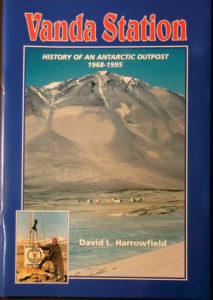 including excavations, the erection of buildings, disturbances caused by vehicle movements, the storage of consumables, waste disposal, and accidental spills, led to the effort to remove the station.
including excavations, the erection of buildings, disturbances caused by vehicle movements, the storage of consumables, waste disposal, and accidental spills, led to the effort to remove the station.
Today, an Automatic Weather Station is at the site of former Vanda Station, and Lake Vanda Hut, a shelter that is periodically (summer only) occupied by 2 to 8 New Zealand stream researchers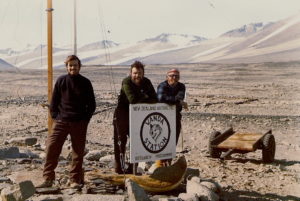
Vanda Station: History of an Antarctic Outpost 1968-1995, is a 52 pages book written by Dr David Harrowfield pubblished by New Zealand Antarctic Society, 1999
The book is Available in the National Library of Australia collection, and through the N.Z. Antarctic Society, PO Box 404, Christchurch, N.Z.
Vanda Station is listed on WAP-WADA directory as WAP NZL-NEW, waiting someone to put it on the air!
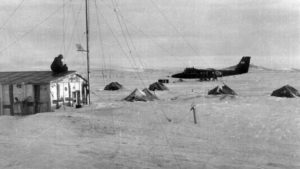 In 1969 the “Patrulla Soberania”, living in small tents, and with picks, shovels and much efforts, managed to give shape to the first airstrip in an Argentinean Antarctic Base. Thus was born the Marambio Base: gateway of large aircraft to the white continent.
In 1969 the “Patrulla Soberania”, living in small tents, and with picks, shovels and much efforts, managed to give shape to the first airstrip in an Argentinean Antarctic Base. Thus was born the Marambio Base: gateway of large aircraft to the white continent.
 Concordia Station (aka Dome “C” Station, WAP MNB-Ø3) is 1000 kilometers from the coast, 13 flight hours from New Zealand. The next inhabited place is the Russian Antarctic Station “Vostok” (WAQP RUS-13), 600 kilometers far away.
Concordia Station (aka Dome “C” Station, WAP MNB-Ø3) is 1000 kilometers from the coast, 13 flight hours from New Zealand. The next inhabited place is the Russian Antarctic Station “Vostok” (WAQP RUS-13), 600 kilometers far away. On the day of “The Night of Museums”, Hams of the “Radio Club QRM Belgrano” will be active as LU4AAO/D operating from the Marambio Antarctic Museum located in the town of Villa Adelina, Buenos Aires Province, next November 4th, 2017.
On the day of “The Night of Museums”, Hams of the “Radio Club QRM Belgrano” will be active as LU4AAO/D operating from the Marambio Antarctic Museum located in the town of Villa Adelina, Buenos Aires Province, next November 4th, 2017. “Radio Club QRM Belgrano” has just add the entry of LU4AAO/D as WAP-286 on the activation page at:
“Radio Club QRM Belgrano” has just add the entry of LU4AAO/D as WAP-286 on the activation page at: 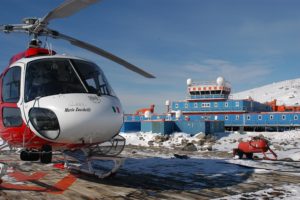
 WAPonline is the only Antarctic site dedicated especially to the Hams worldwide, but also a way to increase the interest around Antarctic Continent and its related matters; to give students and chasers, the opportunity to share our passion, with the aim to stay close to the researchers and personnel who are spending their time away from home and families.
WAPonline is the only Antarctic site dedicated especially to the Hams worldwide, but also a way to increase the interest around Antarctic Continent and its related matters; to give students and chasers, the opportunity to share our passion, with the aim to stay close to the researchers and personnel who are spending their time away from home and families.
 Vanda Station was an Antarctic Research Base in the western highlands (Victoria Land) of the Ross Dependency, specifically on the shore of Lake Vanda, at the mouth of Onyx River, in the Wright Valley. The four original station buildings were constructed in the summers of 1967–1968 and 1968–1969, just prior to the first winter-over by a five-man team from January to October 1969.
Vanda Station was an Antarctic Research Base in the western highlands (Victoria Land) of the Ross Dependency, specifically on the shore of Lake Vanda, at the mouth of Onyx River, in the Wright Valley. The four original station buildings were constructed in the summers of 1967–1968 and 1968–1969, just prior to the first winter-over by a five-man team from January to October 1969.
 including excavations, the erection of buildings, disturbances caused by vehicle movements, the storage of consumables, waste disposal, and accidental spills, led to the effort to remove the station.
including excavations, the erection of buildings, disturbances caused by vehicle movements, the storage of consumables, waste disposal, and accidental spills, led to the effort to remove the station.
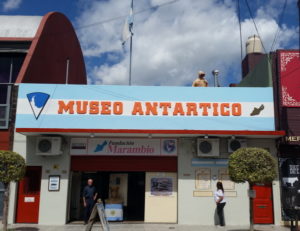 One of the most important Argentine Antarctic Museum did open its doors on the occasion of the Anniversary of Marambio Base foundation .
One of the most important Argentine Antarctic Museum did open its doors on the occasion of the Anniversary of Marambio Base foundation . Alex Ushakov, UA1OJL (picture aside) is actually operating as RI1ANO. He will be there till march 2018 from the Russian Bellingshausen Station (WAP RUS-Ø1) and he’s supposed to be back home by April 2018.
Alex Ushakov, UA1OJL (picture aside) is actually operating as RI1ANO. He will be there till march 2018 from the Russian Bellingshausen Station (WAP RUS-Ø1) and he’s supposed to be back home by April 2018.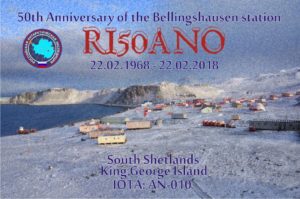
 As global warming reshapes the Arctic and Antarctic, a new designed Museum like a giant iceberg, dedicated to the Poles has been opened last march 2017. The Museum built by the son of a renowned French explorer aims to show “the beauty of polar landscapes” and illustrate the consequences of climate change. The new museum dedicated entirely to the Arctic and the Antarctic has opened in Prémanon, France.
As global warming reshapes the Arctic and Antarctic, a new designed Museum like a giant iceberg, dedicated to the Poles has been opened last march 2017. The Museum built by the son of a renowned French explorer aims to show “the beauty of polar landscapes” and illustrate the consequences of climate change. The new museum dedicated entirely to the Arctic and the Antarctic has opened in Prémanon, France. Finally we did find a time to upload another batch of Antarctic QSLs into the WAP Antarctic QSL Gallery. Some of the cards are Old and rare, some are New to confirm last activities and new callsigns showed up recently from Antarctica.
Finally we did find a time to upload another batch of Antarctic QSLs into the WAP Antarctic QSL Gallery. Some of the cards are Old and rare, some are New to confirm last activities and new callsigns showed up recently from Antarctica. Enter the page by clicking WAP Antarctic QSL Gallery on the main page, then click on enter. Now you are on the Gallery; always remember to click the red square with a ”+” inside and you will open the Country list, one county by one and you can see all the cards loaded- There are several galleries on the Album:
Enter the page by clicking WAP Antarctic QSL Gallery on the main page, then click on enter. Now you are on the Gallery; always remember to click the red square with a ”+” inside and you will open the Country list, one county by one and you can see all the cards loaded- There are several galleries on the Album: Last 24 & 25 sept. Prof Ph D Julius Fabbri went to MAECI (Ministry of Foreign Affairs and International Cooperation) in Rome for a second time, to discuss the progress of its IPSSIA Project.
Last 24 & 25 sept. Prof Ph D Julius Fabbri went to MAECI (Ministry of Foreign Affairs and International Cooperation) in Rome for a second time, to discuss the progress of its IPSSIA Project. .
.
 An envelope has been delivered “own hands” to Tomas Ferrari‘s new Argentina ambassador in Italy. –Open Argentina to the world’ – was the choice of Ferrari when he was nominated as Argentina’s representative to Rome, and this is certainly a good wish.
An envelope has been delivered “own hands” to Tomas Ferrari‘s new Argentina ambassador in Italy. –Open Argentina to the world’ – was the choice of Ferrari when he was nominated as Argentina’s representative to Rome, and this is certainly a good wish.